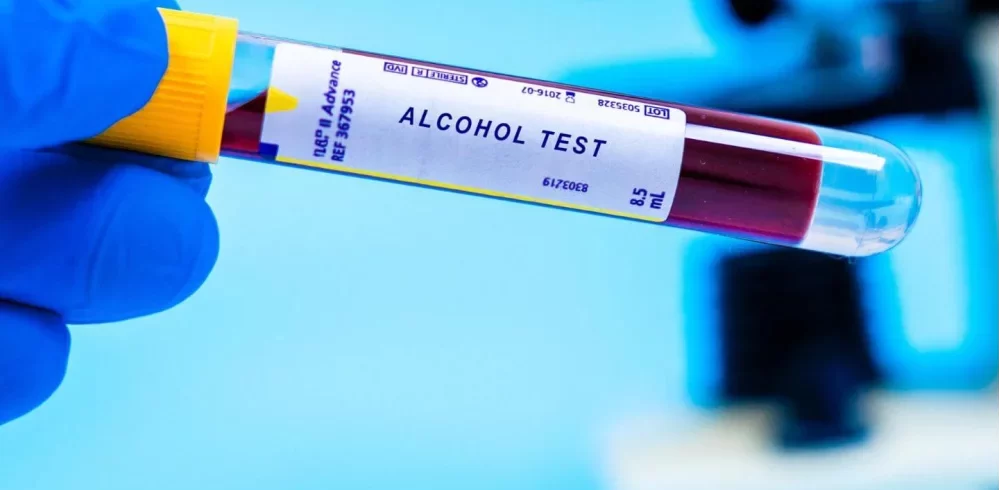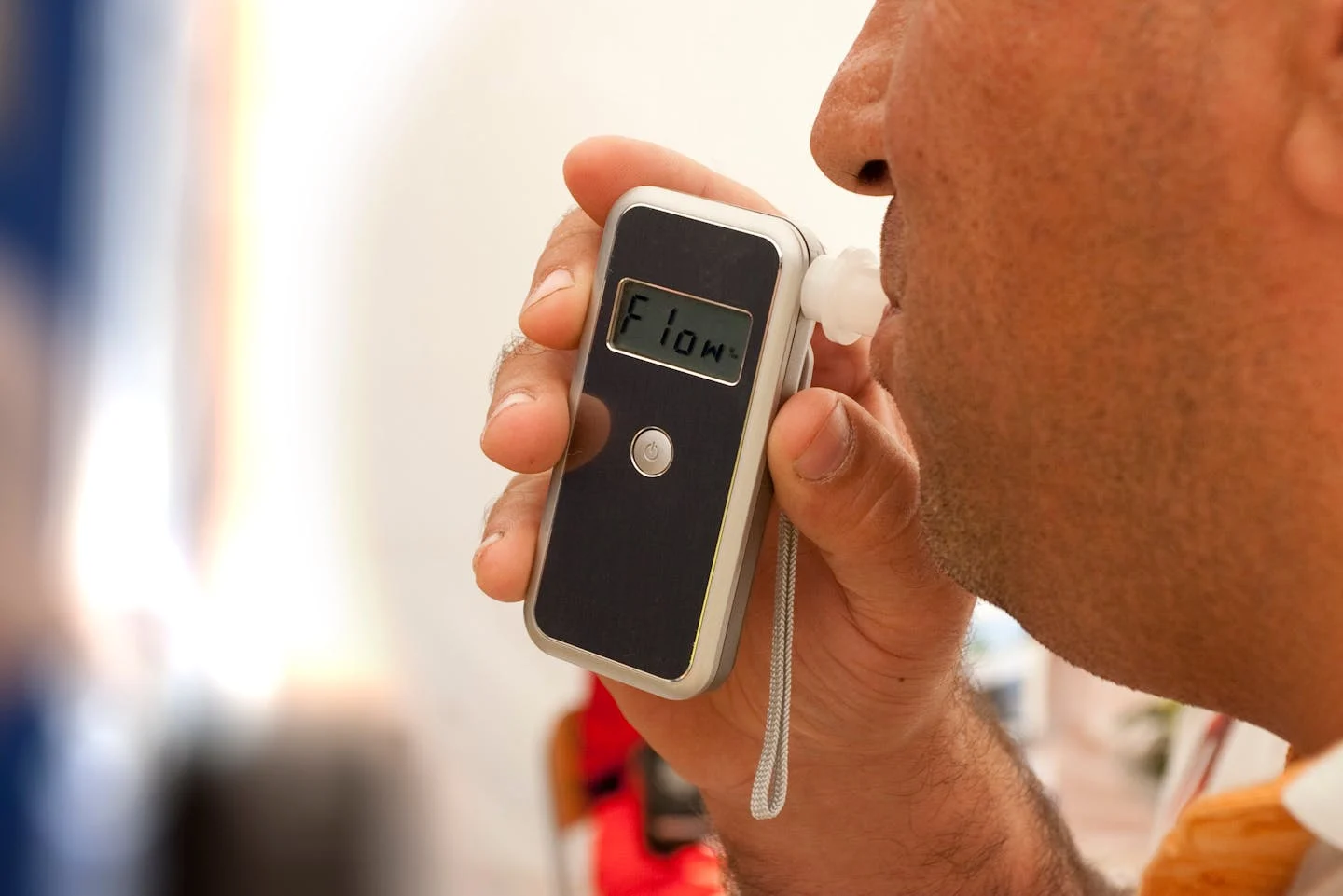Michigan courts universally prohibit alcohol consumption during DUI probation or while out on bond. The restriction applies regardless of where or when drinking occurs. Even small amounts detected through testing count as violations, potentially resulting in jail time.
Guide to Court Ordered Drug and Alcohol Testing For Probation and Bond

Imagine being required to prove your sobriety multiple times a day, with each test potentially determining whether you remain free or not. For thousands of Michigan residents facing DUI charges in the Greater Detroit area, including Wayne, Oakland, and Macomb counties, this isn’t a hypothetical scenario—it’s their daily reality under bond conditions.
The intersection of legal requirements and personal liberty creates a complex landscape where understanding alcohol testing requirements becomes crucial. From breath-testing devices that send results via cell or wireless connections to in-person breath or urine tests, the methods and frequencies of monitoring can vary significantly, impacting everything from daily routines to employment obligations.
Because alcohol testing is often a condition of bond after arrest for a DUI offense, the courts can always review and modify it or, at the request of a criminal defense attorney or the prosecutor. When you retain Jeffrey Randa & Associates, we always ask the court for relief from any requirements that a person cannot meet or that seem overbearing or burdensome. Often, the court will reduce the frequency of alcohol testing or may take other actions to make it easier.
Different Types of Alcohol Testing Used in Michigan DUI Cases

Michigan courts use several methods to monitor alcohol consumption while a person is out on bond while a DUI case is pending, and during his or her period of probation.
Testing is always part of a court order to NOT drink. Thus, you’re told by the Judge not to drink. In order to ensure you comply, the court will monitor you through the use of alcohol testing.
Alcohol testing comes mainly in two forms: breath or urine.
Urine testing for alcohol is really not particularly good because it just shows that you have consumed alcohol. It really doesn’t show any specific amount, but it does show that you either did or didn’t consume within a day or two of the time the sample was provided.
Breath testing is another method used for individuals who are out on bond or on probation. There are 3 ways this is done:
Portable Cellular Alcohol Tester
The first involves using a portable cellular alcohol tester, and depending on the bond or probation conditions, the person will be required to blow into it at specific times throughout the day or week.
In-Person Testing Facility
The second method requires a person to show up at a testing facility and provide a breath sample into a portable (PBT) breath testing machine.
SCRAM Tether
A third testing method, less commonly used by the courts, is called a SCRAM Tether. A SCRAM Tether is an ankle tether that detects alcohol from the sweat of your body on your skin. Depending on the circumstances, like when a judge wants to monitor someone 24/7, this method is still sometimes used to monitor compliance while out on bond or on probation in DUI cases.
How Frequently Are Random Drug Tests Conducted During Probation or Bond?
The frequency of random testing varies based on things like the original offense severity and the judge’s approach. Some courts require multiple daily breath tests, while others may order testing just a few times monthly. Past compliance plays a key role, as those with clean testing records during bond or on probation are often subsequently rewarded with less frequent monitoring.
Failing or missing a drug test (or an alcohol test) triggers either a bond or probation violation, requiring a court appearance to explain the failure or absence. Consequences can include jail time, though the first such violation typically results in increased testing requirements. You may have to take random drug tests for the duration of your bond and while on probation.
How Does Alcohol Testing Affect My Bond or Probation Terms?
Missing or failing a court-ordered test is a violation of probation or bond and will require a court appearance. The judge will schedule a show cause hearing where you must explain what happened. While first-time violations often result in stern warnings, often combined with increased testing frequency, repeated misses or failed tests can lead to jail time. The maximum jail period depends on your underlying offense—from 93 days to a year. A Michigan court may consider your explanation and actions after missing or failing a test when determining consequences. For example, getting tested shortly after a missed appointment looks better than waiting several days.
On a more positive note, the frequency of your alcohol testing may be reduced or modified for individuals who continue to demonstrate their compliance, among other circumstances.
What Are the Conditions of a Bond After a DUI?
Standard bond conditions in Michigan prohibit alcohol consumption and illicit drug use, including recreational marijuana. Other conditions of a bond may include:
- High-risk medications require valid prescriptions, including medical marijuana cards.
- You cannot leave Michigan without court permission or commit any new legal violations.
- Judges may add specific requirements like alcohol testing conditions or maintaining employment.
Most bonds include regular alcohol testing and often drug testing, as well, to verify compliance. These terms remain until your case concludes or the court modifies them.
What Happens If I Have Been Drinking While on a Bond?
Drinking while on bond typically leads to immediate legal consequences. The judge may revoke your bond and order jail time, particularly for repeat violations. When alcohol content testing shows consumption, your attorney needs to act quickly–examining whether equipment malfunctions occurred or developing strategies to minimize penalties.
Courts view alcohol violations seriously, as they indicate an inability to follow basic requirements. While first-time positive tests might result in increased monitoring or stricter conditions, multiple violations may lead to bond revocation, or the revocation of probation, resulting in incarceration.
Being found responsible for other violations, like picking up a new offense, or getting caught leaving the state without permission, can compound these issues, and puts someone at serious risk of getting jail time.
Can the Conditions of a Bond Be Modified?
Because testing is imposed as a condition of bond, it can always be reviewed and modified, and this can be done by the judge, on his or her own, or at the request of either the person’s lawyer or the prosecutor.
Often, our DUI lawyers can persuade a judge to reduce the frequency of such testing or otherwise make it easier on our client. One thing is sure; you won’t get any relief without asking for it.
Beyond that, it is important that we use our client’s compliance with the testing and the lack of any positive tests to his or her advantage at ALL stages of the case, including during our meetings and negotiations with the prosecutor, right up through the time of sentencing.
How Can a DUI Attorney Help With Alcohol Testing Issues?
At Jeffrey Randa & Associates, our DUI attorneys can review testing procedures to identify potential errors like mislabeled or mixed up samples or equipment malfunctions. For example, eating or drinking before alcohol testing can cause false readings that our legal team can challenge.
Were You Charged With A DUI In Michigan?
Your Best DUI Defense Starts Here. We’ll Protect You and Your Future.
We can (and often do) request bond modifications to adjust burdensome testing schedules—like switching from facility testing to home monitoring. For example, we’ve done this for nurses working hospital shifts and others who can’t just walk off their job to provide a breath sample.
If a violation occurs, our law firm will do everything possible to persuade the court to minimize penalties. When challenging positive results, our team can recommend follow-up testing to verify accuracy and present evidence of testing irregularities to the court.
Why Work With Jeffrey Randa & Associates
Our legal team brings over 30 years of proven success in Michigan DUI cases. Our law firm maintains a direct line of communication with clients throughout their cases, offering practical guidance for testing requirements and court appearances.
Our attorneys understand the local court systems, testing facilities, and procedural requirements that impact DUI cases. Let our firm help you get your life back on track.
Our Final Thoughts on Alcohol Testing Requirements
Successfully navigating alcohol testing requirements demands a thorough understanding of both legal obligations and practical considerations. While these conditions may seem overwhelming at first, proper preparation and legal guidance can help create a manageable pathway through the monitoring process.
Remember that compliance with testing requirements isn’t just about avoiding violations—it’s an opportunity to demonstrate responsibility and commitment to positive change.
Our experienced legal team at Jeffrey Randa & Associates can help you understand your obligations while protecting your rights throughout the testing period. If you are trying to modify the conditions of your bond or were recently arrested for a DUI or OWI, contact our law firm at 586-465-1980 or fill out our online contact form for a free consultation.







